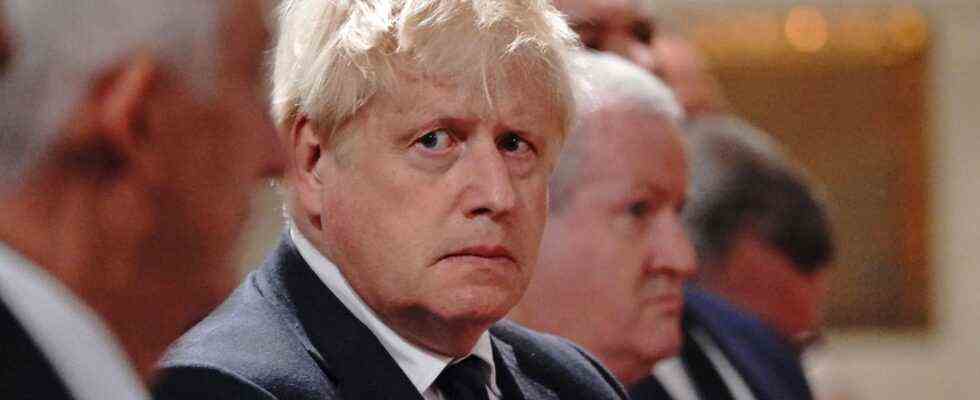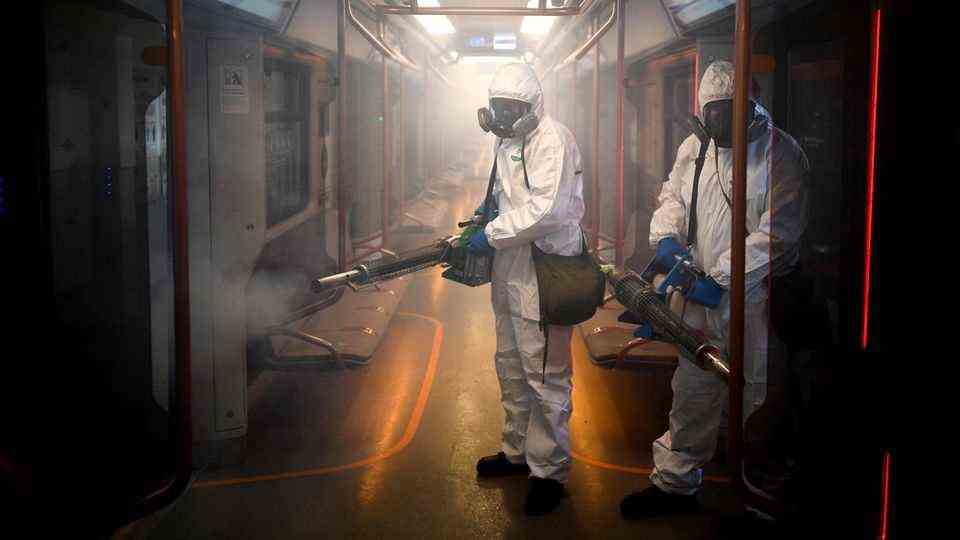High infection rates, rising hospital and death cases: 100 days after Freedom Day, many in Great Britain no longer feel like celebrating. Doctors are alarmed. And ask yourself: What about “Plan B”?
If two things can only be partially reconciled, then it is the fight against the coronavirus and making resilient plans. Nobody should know that better than the British.
The number of infections soared last December. A highly contagious variant of the virus spread in the UK. And Boris Johnson had to make a decision “with a heavy heart”: “We cannot continue with Christmas as planned.”
The British Prime Minister was forced to tough measures to seize in England. Contact restrictions, which should be relaxed over the holidays, have been tightened. And Christmas, with family and friends, was practically canceled. “We are sacrificing our chance to see our loved ones this Christmas to have a greater chance of protecting their lives,” Johnson said at the time, “so we can see them at Christmas in the future.”
At least this plan should work. The only question is under what conditions. Because now, ten months later, the coronavirus could upset supposed certainties again.
Plan B stays in the drawer
“Cautious, but irreversible” – this is how Johnson had announced the gradual lifting of the corona measures in England. On July 19th the time had come. In the largest British part of the country, the last pandemic rules such as keeping your distance and wearing a mask fell. Young night owls celebrated “Freedom Day”, the great freedom, in the country’s discos.
But almost 100 days later, many no longer feel like celebrating.
Britain now has one of the highest infection rates in the world. The seven-day incidence was already around 450 in mid-October, and the trend is rising. The campaign, which was celebrated as a vaccination miracle – which started much faster than in many EU countries – is stalling when it comes to booster vaccinations for the elderly and young people.
Now the number of climbed registered new infections to almost 50,000 – that is more cases than Germany, Spain and France recorded together. And the number of daily hospital admissions is also increasing. It is now almost 1000. On Tuesday, the number of reported corona deaths reached 223, a level last seen in March.
Is it time for plan B?
Johnson had this a few weeks ago announced for the winter, the pandemic should not be kept under control with booster vaccinations. The plan, briefly outlined: the return to the obligation to work from home, to wear a mask and the obligation to show vaccination certificates at major events. The emergency plans would only come into effect if there was “unsustainable” pressure on the NHS health service in England, said Johnson.
10 Downing Street does not seem to see this pressure yet. Despite the increasing number of infections, a return to the abolished corona rules is currently not planned, Health Minister Sajid Javid said on Wednesday. Plan B remains in the drawer for the time being.
Instead, efforts should now be stepped up to vaccinate as many people as possible. The British vaccination program is currently stalling, especially for young people and the elderly who are to receive a booster vaccination. At the same time, Javid warned that the number of new infections every day could soon rise to 100,000.
“We are at the limit”
Experts and medical professionals are also asking themselves how this should fit together. It leaves the action of 10 Downing Street confused, sometimes dismayed.
“It is deliberately negligent of the government in Westminster not to take any measures to contain the infections,” said the British medical association, the British Medical Association (BMA). The government has promised to take a Plan B if the National Health Service (NHS) is in danger of being overwhelmed. “As first line doctors, we can absolutely say that this point has now been reached.”
The NHS also sees itself at the limit. “We’re at the limit, and it’s mid-October,” said the executive director of the NHS ‘Association of Sponsoring Organizations, Matthew Taylor, dem “Guardian”. “It would take a lot of luck not to find ourselves in a serious crisis in three months.”
There are a number of reasons why the UK could face another major crisis.
Perhaps the British are now partially undoing their vaccination miracle, because the effect is already waning for many, as a data journalist of the “Financial Times” (FT) speculates. An effect that was also shown in Israel. The statistical comparison of different countries also shows that the completely unrestricted gatherings of people indoors are likely to have a large share, so “FT” journalist John Burn-Murdoch on Twitter.
The epidemiologist Neil Ferguson from Imperial College in London comes to similar conclusions. He is particularly concerned about the particularly high infection rates among young people. 12 to 15 year olds in England have only been vaccinated once and the vaccination rate is low. He therefore calls for a second vaccination for young people and an acceleration of the vaccination campaign as a whole, like that “Independent” reported.
It only seems certain that nothing is certain – shortly before Christmas Day during the corona pandemic. The search for a master plan continues.
Sources:“The Guardian”, “The Independent”, Public Health England, BBC, CNN, with material from the DPA news agency


